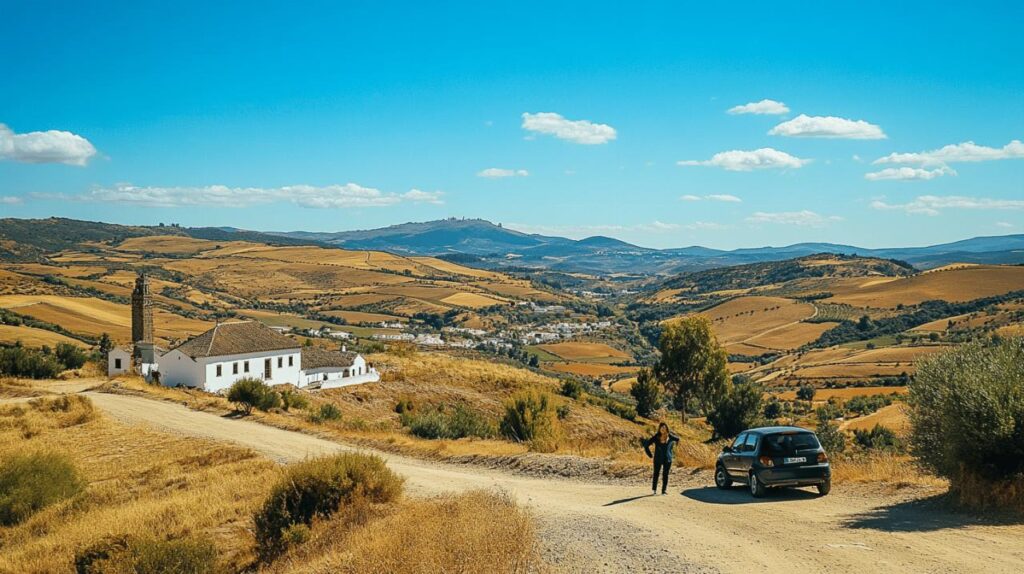Planning a Spanish getaway with the freedom to explore at your own pace means renting a car, but smart travelers know that vehicle hire costs can add up quickly. Maximizing value while securing reliable transportation requires strategic thinking and insider knowledge of the Spanish car rental market.
Cost-saving strategies for spanish car rentals
When exploring Spain by car, managing your rental expenses effectively can free up your budget for experiences rather than transportation. From selecting the right vehicle size to understanding fuel policies, several approaches can dramatically reduce your overall rental costs while still ensuring a quality driving experience.
Booking in Advance vs. Last-Minute Deals
Timing your car rental reservation strategically can significantly impact pricing. Booking early, ideally up to 8 months before your trip, typically secures the best rates and vehicle selection. This approach is particularly crucial if you require specific features like automatic transmission, which commands premium prices in Spain and sells out quickly. Comparison sites like EasyTerra and Centauro often offer substantial discounts reaching up to 40% for advance bookings. While last-minute deals occasionally appear, they rarely match early booking savings and may leave you with limited options, especially during peak travel seasons. For comprehensive guides on optimal booking strategies, visit https://www.elrinconcunqueiru.com/ where specialized travel experts regularly update their advice based on current market conditions.
Comparing rental companies beyond price
Looking past the headline daily rate reveals substantial differences between rental providers. Major international companies might display competitive base prices but generate profits through expensive add-ons and insurance upsells. Evaluate each company’s fuel policy—whether full-to-full, pre-purchase, or free fuel—as this significantly affects total cost. Check mileage limits, especially with local companies that may impose restrictive caps leading to substantial overage fees. Documentation requirements vary; some companies demand international driving permits while others accept standard licenses from your home country. Vehicle inspection protocols differ widely too, with some firms meticulously documenting existing damage while others conduct cursory checks, potentially leading to disputes upon return. Small cars not only cost less to rent but also navigate narrow Spanish streets more easily and consume less fuel—a Toyota Ka might cost €14 daily compared to €52 for a larger Seat Alhambra.
Navigating Spanish Roads on a Budget
Planning to explore Spain by car but worried about costs? Renting a vehicle in Spain can be both convenient and affordable with the right approach. Booking early, choosing appropriate vehicles, and understanding local policies can lead to significant savings. This guide offers practical advice for travelers seeking economical car rental options across Spain’s diverse landscapes.
Fuel efficiency considerations
Selecting a small, fuel-efficient car is one of the most effective ways to save money when renting in Spain. Compact vehicles not only cost less to rent (starting from approximately €14 per day) but also consume less fuel during your journey. Smaller cars are ideal for navigating narrow village streets and finding parking in busy areas.
When managing fuel costs, maintain a steady driving pace rather than frequent acceleration and braking. Many Spanish rental companies operate under a “full-to-full” fuel policy, requiring you to return the vehicle with the same amount of fuel you received it with. This is typically more economical than pre-purchase options. Check fuel prices along your route, as smaller gas stations away from highways often offer better rates than those on major roads.
For maximum savings, book your rental car online through reputable platforms like Booking.com, EasyTerra, or Centauro, which can offer discounts up to 40%. Aim to reserve your vehicle up to 8 months in advance for the best rates, especially if you require an automatic transmission, which is less common and more expensive in Spain.
Insurance options worth the money
While seeking budget options, certain insurance coverages represent worthwhile investments. All-inclusive insurance policies may seem costly initially but can prevent substantial expenses later. These comprehensive packages typically include collision damage waiver (CDW), theft protection (TP/THW), and eliminate the need for high security deposits, which can reach €5,000 with basic coverage.
Understanding the different insurance types is crucial: Third Party Insurance (TPI) is legally required, CDW covers vehicle damage with a deductible, while Super CDW (all-risk) eliminates the deductible but may have exclusions. The truly cost-effective choice is often all-inclusive coverage, which combines all-risk protection with extras like additional drivers and unlimited mileage.
Before accepting any vehicle, conduct a thorough inspection and document existing damage with photos and videos. Check all panels, tires, spare equipment, and verify the presence of mandatory safety items like warning triangles and reflective vests. This documentation protects you from being charged for pre-existing damage upon return. Similarly, before returning the vehicle, take photos of each panel, wheels, mileage, and fuel gauge to maintain evidence of the car’s condition.
Consider alternatives to airport pickups, such as renting from local offices or train stations, which can be less expensive. If your itinerary includes major cities, consider renting the car only for specific portions of your trip and using public transportation for urban areas, saving on both rental and parking costs. For instance, a train ride from Jerez to Cadiz costs just €4 compared to the expenses of driving and parking.
Rental requirements vary by company, but generally, drivers must be at least 21 (with more options available for those 25 and older), possess a valid driver’s license held for 1-2 years minimum, and present a passport or ID and credit card. Drivers under 21 or over 65 might face surcharges, and border crossing is typically restricted except for Portugal and Andorra.

